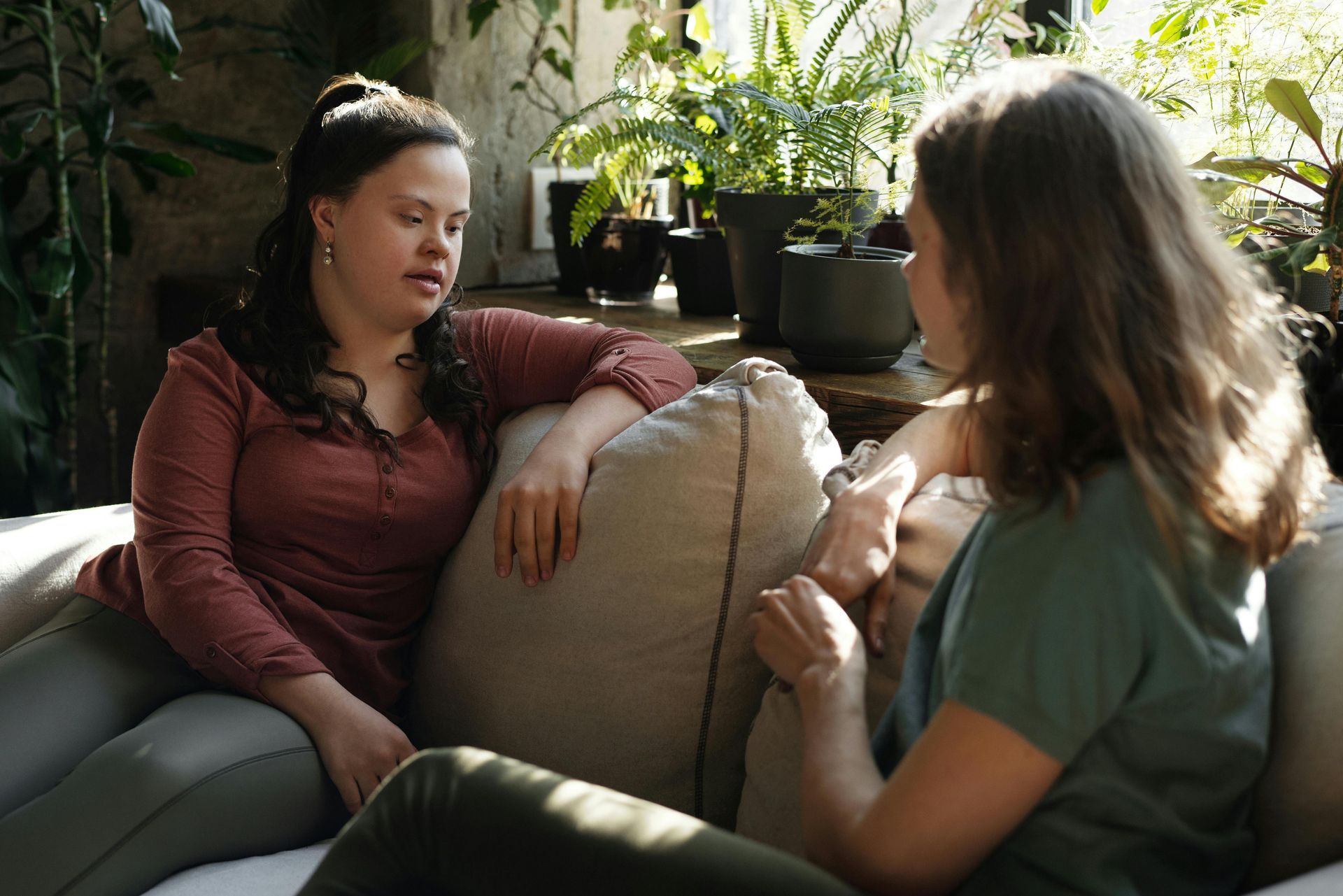The Hidden Impact of Social Isolation
Understanding the real cost of disconnection — and how compassionate, community-based care changes lives.
The body content of your post goes here. To edit this text, click on it and delete this default text and start typing your own or paste your own from a different source.
We often think of social isolation as “just being alone.” But it’s so much more than that. It's not just the absence of people; it’s the absence of connection, of purpose, of being seen and heard. And when it goes on for too long, it doesn’t just make people feel lonely — it starts to change the way they think, feel, and even function.
At IntriCare, we work closely with individuals — especially young people and vulnerable adults — who’ve experienced the weight of social isolation. Our community-based approach is built to reconnect, restore, and reignite a sense of belonging. But first, let’s talk honestly about what social isolation really does to a person.
Isolation Isn’t Just Emotional — It’s Physical
Prolonged isolation isn’t only a mental health concern. It takes a toll on the whole body. Research shows that chronic loneliness and isolation can be as damaging to physical health as smoking 15 cigarettes a day. That’s not just a dramatic comparison — it’s a public health warning.
People who are isolated for long periods are more likely to experience:
- Weakened immune systems
- Higher rates of heart disease
- Increased inflammation in the body
- Poorer sleep
- Slower recovery from illness or injury
This is especially serious for older adults, disabled individuals, and people managing long-term conditions who may already face limited mobility or access to outside interaction.
The Mental Health Spiral: When Disconnection Deepens Distress
Let’s be clear — everyone feels lonely from time to time. But when that loneliness becomes chronic, it starts to impact how someone sees themselves and the world around them.
Social isolation can feed into:
- Low self-esteem (“No one wants to hear from me anyway.”)
- Increased anxiety (“What if I’ve forgotten how to talk to people?”)
- Depression (“It’s been so long... what’s the point?”)
- Cognitive decline (especially in older adults, due to lack of stimulation)
When someone starts to internalise their isolation, they often stop reaching out altogether. That makes the cycle even harder to break.
For youth especially, this can lead to disengagement from education, risky behaviours, or difficulty trusting others. For adults, it can show up as withdrawal, hopelessness, or even physical neglect.
The Invisible Signs: How Social Isolation Hides in Plain Sight
Social isolation doesn’t always look like someone sitting alone. It can look like:
- A teenager staying in their room all day with no engagement
- An adult attending appointments but never speaking unless prompted
- A parent who’s stopped answering texts because “they don’t know what to say”
- A person in supported housing who hasn’t had a meaningful conversation in weeks
It’s easy to miss. People often become good at hiding it. But the effects accumulate, quietly undermining their well-being.
How Community-Based Care Breaks the Cycle
This is where IntriCare’s approach makes a real difference. We don’t just provide services — we build connection
1. Support That Starts With Listening
We begin by meeting people where they are — emotionally, mentally, and physically. Our teams don’t come in with assumptions. We take time to understand what someone’s been through and what they need to feel safe and supported.
2. Activities That Rebuild Confidence
Whether it’s helping someone join a local group, re-engage with education, or simply feel confident taking a walk with a support worker, we look for small but powerful wins. Our programmes are structured to help people gently reconnect with the world — at their own pace.
3. One-to-One Keyworker Support
Every individual gets matched with a keyworker who becomes a consistent presence in their life. That trust-based relationship can be the first step out of isolation. It tells the person, “You matter. I’m here. Let’s do this together.”
4. Family & Community Inclusion
We don’t just work with the person receiving care — we include their circle. Family members, carers, and even local community groups become part of the solution. When the support network grows, so does the individual’s sense of belonging.
Real Lives, Real Changes
We’ve seen incredible transformations. One young person who hadn’t left their home in months is now volunteering once a week. A vulnerable adult who felt abandoned after a health crisis now leads a weekly art session. A mother who didn’t know where to start now feels informed, included, and empowered.
These aren’t overnight changes. But they are real, lasting ones — built on trust, time, and the belief that no one is beyond connection.
If You’re Noticing the Signs… You’re Not Alone
If you're reading this because you're worried about a loved one — or maybe even yourself — we want you to know: there is help, and there is hope.
Social isolation is powerful, but so is connection. With the right care and community, things can change.
How to Take the First Step
If you’re a family member or friend:
- Start with a gentle conversation. No pressure, just curiosity.
- Don’t assume silence means everything is okay — keep showing up.
- Reach out to services like IntriCare who can help you navigate the next steps.
If you’re a healthcare professional:
- Consider social isolation as a key risk factor when referring.
- Choose services that offer person-centred, flexible support.
- Partner with organisations like ours to create wraparound care.
If you’re the one feeling isolated:
- You are not a burden. You are not invisible.
- Help is available — and it will meet you where you are.
- Take one small step. Even reading this article is one.
Connection is a Lifeline — And We’re Holding the Rope
At IntriCare, we believe no one should feel forgotten. Every person deserves a support system that sees them, hears them, and walks alongside them.
Social isolation may be hidden, but its effects are not. Let’s bring it into the light — together.
If you'd like to learn more about how we can help, or refer someone in need, get in touch with our team today. Compassionate care is only one conversation away.



